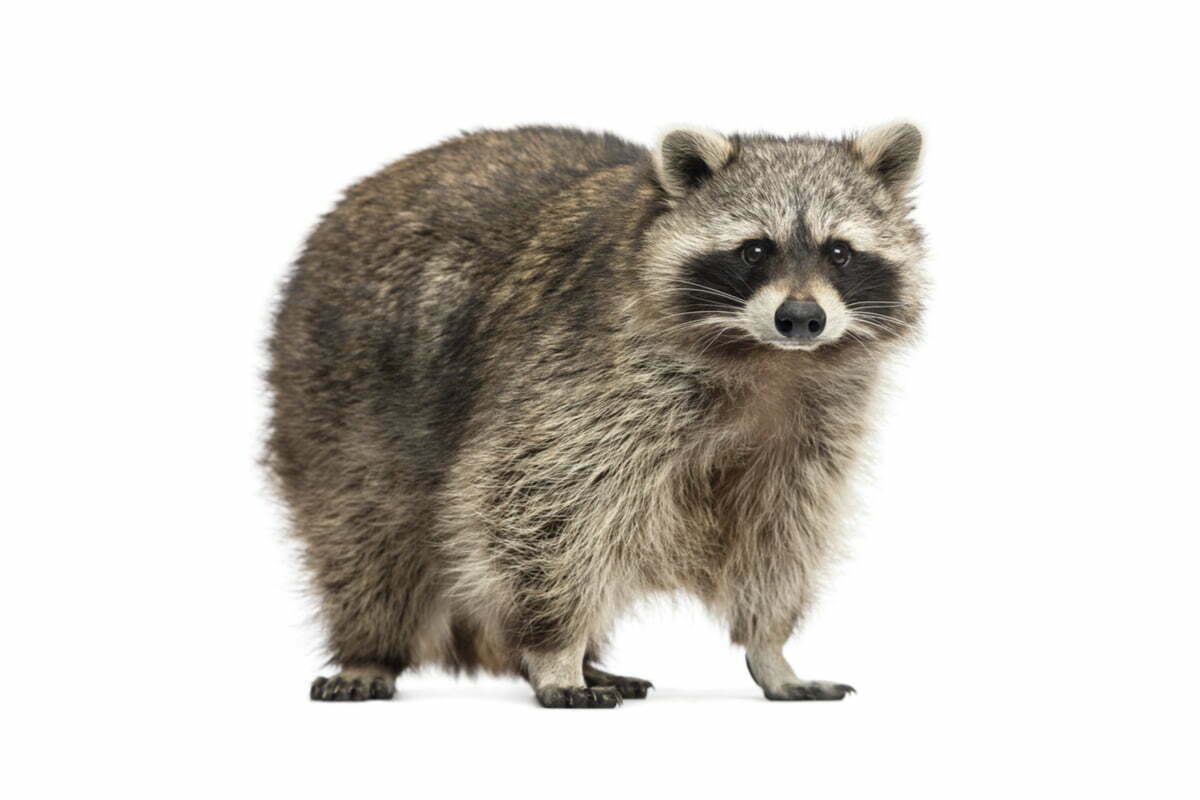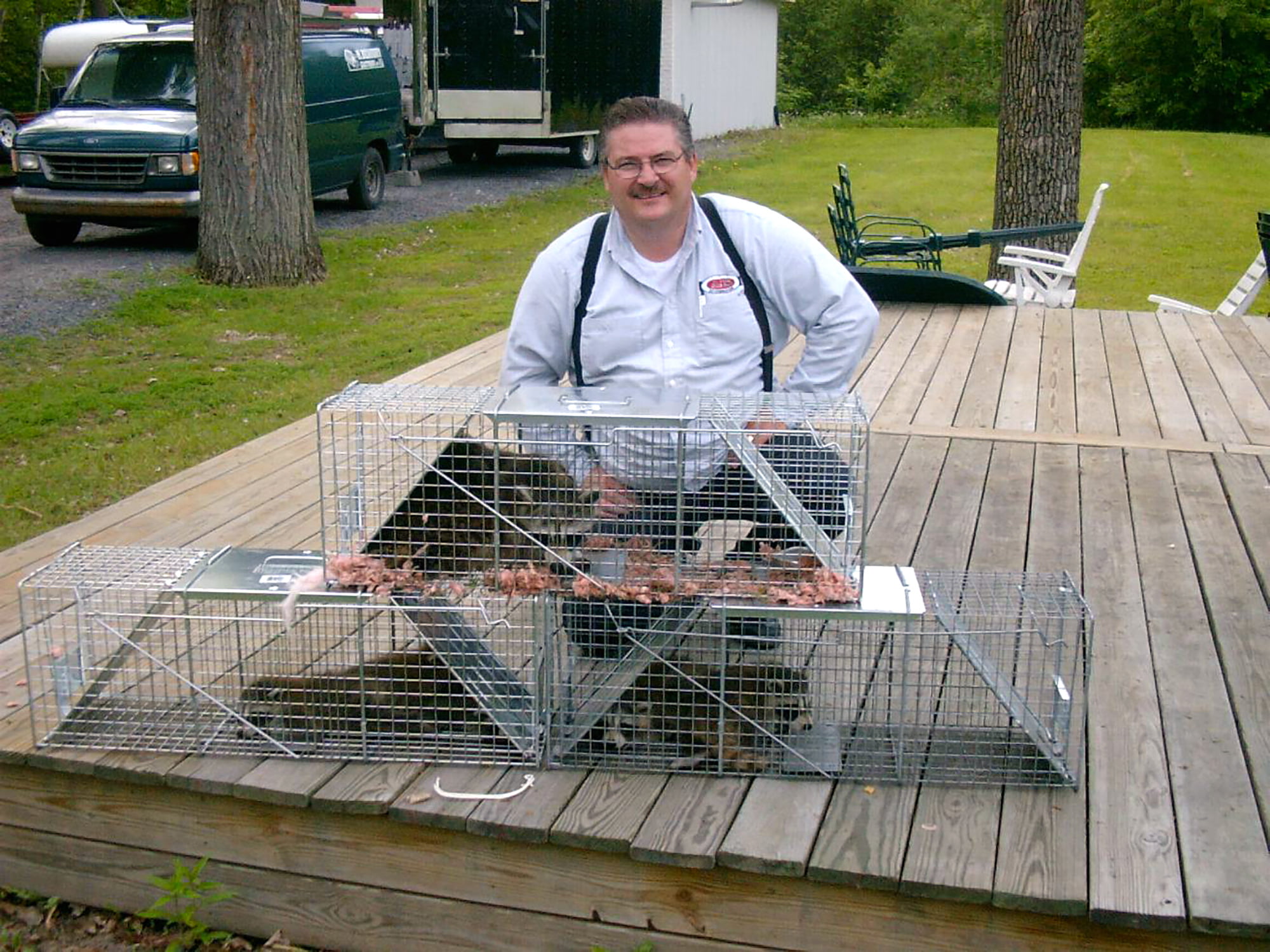Raccoons
Appearance
Raccoons are easily identified by its black mask, white around the eyes and bushy tail with white and black stripes. It can weigh between 10 and 30 pounds and measure 61 to 91 cm in length. The color of its fur varies from salt and pepper to yellowish brown.
Think you might have found this animal in your home?
Talk with an Expert
Life Cycle
Females have one litter per year, with an average of 2 to 5 young. In captivity, raccoons can live up to 12 years in the wild their lifespan is under 6 years due to lack of food and water, diseases, predators and other environmental factors.
Habitat and Food
In urban areas, raccoons may take refuge in a chimney, sewer, garage, attic, barn, tree, or under a small bridge. Being omnivorous, raccoons can feed on a wide variety of plant and animal products; however, it prefers corn, fruits, nuts and crayfish.
Undesirable Effects
In general, raccoons are not a danger to humans. However, they are very powerful and can attack or defend itself when provoked. Raccoons often cause damage by digging through garbage, as well as causing structural damage to get inside an attic or wall cavity, leaving behind their urine and feces. They can also cause damage by digging for worms thus ruining a garden.
Signs of Presence
Outdoor garbage cans overturned and shredded are the most common indicators of the presence of a raccoon. As well, 7 to 10 cm holes in lawns or overturned grass can be found. In rural areas, raccoons may leave poultry carcasses and broken eggs in hen houses.
